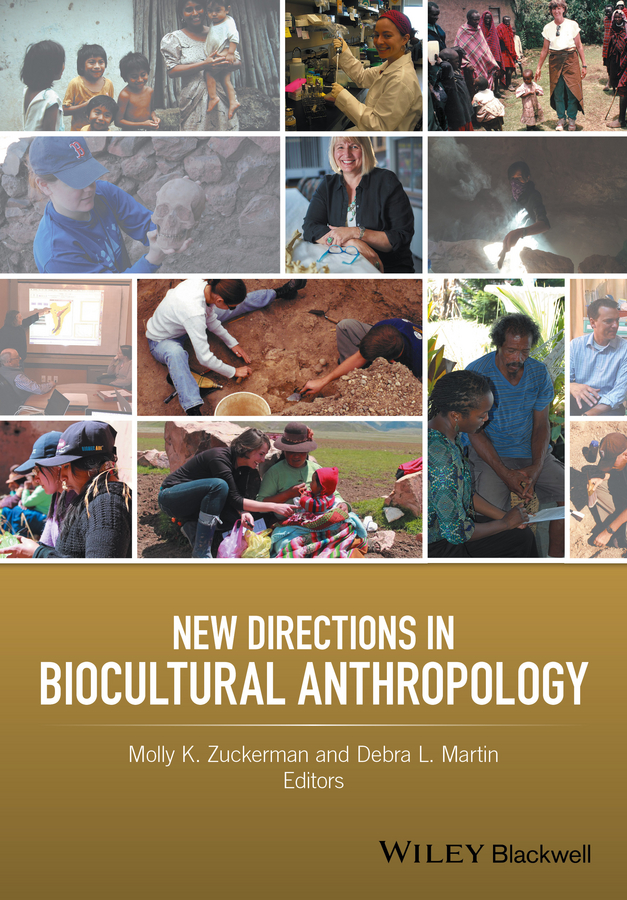Электронная книга: Molly Zuckerman K. «New Directions in Biocultural Anthropology»

|
Biocultural or biosocial anthropology is a research approach that views biology and culture as dialectically and inextricably intertwined, explicitly emphasizing the dynamic interaction between humans and their larger social, cultural, and physical environments. The biocultural approach emerged in anthropology in the 1960s, matured in the 1980s, and is now one of the dominant paradigms in anthropology, particularly within biological anthropology. This volume gathers contributions from the top scholars in biocultural anthropology focusing on six of the most influential, productive, and important areas of research within biocultural anthropology. These are: critical and synthetic approaches within biocultural anthropology; biocultural approaches to identity, including race and racism; health, diet, and nutrition; infectious disease from antiquity to the modern era; epidemiologic transitions and population dynamics; and inequality and violence studies. Focusing on these six major areas of burgeoning research within biocultural anthropology makes the proposed volume timely, widely applicable and useful to scholars engaging in biocultural research and students interested in the biocultural approach, and synthetic in its coverage of contemporary scholarship in biocultural anthropology. Students will be able to grasp the history of the biocultural approach, and how that history continues to impact scholarship, as well as the scope of current research within the approach, and the foci of biocultural research into the future. Importantly, contributions in the text follow a consistent format of a discussion of method and theory relative to a particular aspect of the above six topics, followed by a case study applying the surveyed method and theory. This structure will engage students by providing real world examples of anthropological issues, and demonstrating how biocultural method and theory can be used to elucidate and resolve them. Key features include: Contributions which span the breadth of approaches and topics within biological anthropology from the insights granted through work with ancient human remains to those granted through collaborative research with contemporary peoples. Comprehensive treatment of diverse topics within biocultural anthropology, from human variation and adaptability to recent disease pandemics, the embodied effects of race and racism, industrialization and the rise of allergy and autoimmune diseases, and the sociopolitics of slavery and torture. Contributions and sections united by thematically cohesive threads. Clear, jargon-free language in a text that is designed to be pedagogically flexible: contributions are written to be both understandable and engaging to both undergraduate and graduate students. Provision of synthetic theory, method and data in each contribution. The use of richly contextualized case studies driven by empirical data. Through case-study driven contributions, each chapter demonstrates how biocultural approaches can be used to better understand and resolve real-world problems and anthropological issues. Издательство: "John Wiley&Sons Limited"
ISBN: 9781118962930 электронная книга Купить за 10034.49 руб и скачать на Litres |
Другие книги автора:
| Книга | Описание | Год | Цена | Тип книги |
|---|---|---|---|---|
| Modern Environments and Human Health. Revisiting the Second Epidemiological Transition | Written in an engaging and jargon-free style by a team of international and interdisciplinary experts, Modern Environments and Human Health demonstrates by example how methods, theoretical… — John Wiley&Sons Limited, электронная книга Подробнее... | электронная книга |
См. также в других словарях:
Anthropology — This article is about the social science. For other uses, see Anthropology (disambiguation). Anthropology Fields Archaeology Biological an … Wikipedia
Anthropology and Archaeology — ▪ 2009 Introduction Anthropology Among the key developments in 2008 in the field of physical anthropology was the discovery by a large interdisciplinary team of Spanish and American scientists in northern Spain of a partial mandible (lower… … Universalium
Linguistic relativity — Anthropology Fields Archaeology Biological anthropology Cultural anthropology Linguistic anthropology Social anthropology … Wikipedia
Sociocultural evolution — Cultural evolution redirects here. For gene culture coevolution, see Dual inheritance theory. Sociology … Wikipedia
Коул, Майкл (психолог) — Майкл Д. Коул (англ. Michael D. Cole) (13 апреля 1938) американский профессор коммуникации и психологии Калифорнийского университета в Сан Диего (UCSD) (с 1978 года), основатель и директор лаборатории сравнительного человеческого… … Википедия
Cultural neuroscience — is the study of how cultural values, practices and beliefs shape and are shaped by the mind, brain and genes across multiple timescales.[1] The study of cultural neuroscience bridges theory and methods from anthropology, psychology, neuroscience… … Wikipedia
